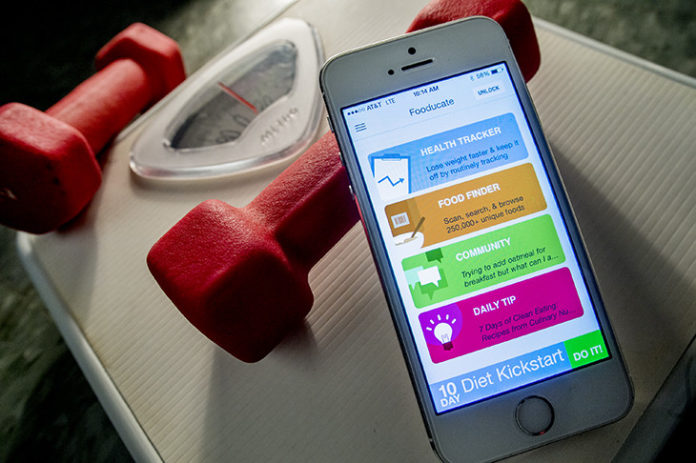
Like most Americans, you have packed on a few pounds with holiday fêting and feasting. If you’re looking to trim down now, one of the best tools may be in the palm of your hand.
Cellphone support can help people lose significantly more weight, according to a recent study conducted by researchers at the Tulane University School of Public Health and Tropical Medicine.
Tanika Kelly, associate professor of epidemiology, said using one of the many mobile apps with daily text messages or videos incites the user to think about dieting and eating well.
“In conjunction with reducing caloric intake and increasing physical activity, mobile messaging services could help to maintain and sustain weight loss over time,” said Kelly, who earned a Master of Public Health from Tulane in 2003 and a PhD in 2009. “It reminds us to continue our good behaviors.”
One of the students in Kelly’s meta-analysis class spurred the project. Fangchao Liu, an advanced PhD student from China, worked with a group in the class to analyze 14 previous randomized controlled trials of mobile phone interventions that included 1,337 participants. Liu is the first author of an abstract published in the journal Circulation about the meta-analysis, which showed mobile phone interventions correlated with weight loss and reduction in body mass index.
Although the increased weight loss was modest — about 1.44 kilograms (just over 3 pounds more) on average during the six- and 12-month studies — Kelly said that individual weight loss can have important public health implications for populations.
Obesity and being overweight is a major global health challenge because of the direct link to cardiovascular disease and diabetes, Kelly said.
“Even modest levels of sustained weight loss can yield substantial reductions in weight-related morbidity, mortality and healthcare costs,” she said.
Story Source:
The above story is based on materials provided by Tulane University. The original article was written by Fran Simon. Note: Materials may be edited for content and length.
